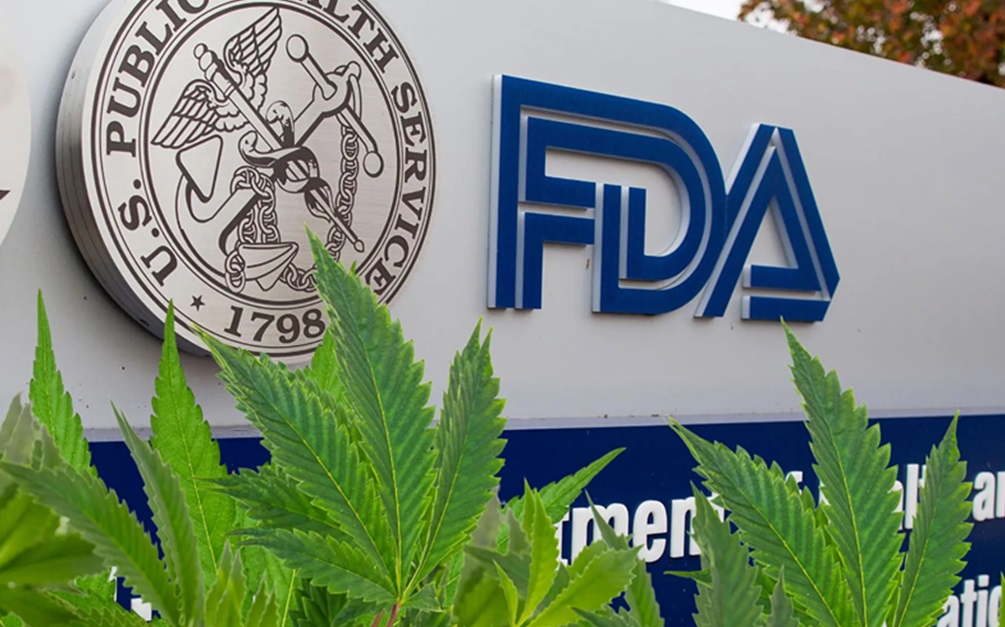WARNING: This product contains nicotine. Nicotine is an addictive chemical.
Only for adults. Anyone below the age of 21 is prohibited from buying e-cigarette.
WARNING: This product contains nicotine. Nicotine is an addictive chemical.
Only for adults. Anyone below the age of 21 is prohibited from buying e-cigarette.
To date, the FDA has not approved a marketing application for cannabis for the treatment of any disease or condition. The agency has, however, approved one cannabis-derived drug product: Epidiolex (cannabidiol), and three synthetic cannabis-related drug products: Marinol (dronabinol), Syndros (dronabinol), and Cesamet (nabilone). These approved drug products are only available with a prescription from a licensed healthcare provider. Importantly, the FDA has not approved any other cannabis, cannabis-derived, or cannabidiol (CBD) products currently available on the market.
FDA has approved Epidiolex, which contains a purified form of the drug substance cannabidiol (CBD) for the treatment of seizures associated with Lennox-Gastaut syndrome or Dravet syndrome in patients 2 years of age and older. That means FDA has concluded that this particular drug product is safe and effective for its intended use.
The agency also has approved Marinol and Syndros for therapeutic uses in the United States, including for nausea associated with cancer chemotherapy and for the treatment of anorexia associated with weight loss in AIDS patients. Marinol and Syndros include the active ingredient dronabinol, a synthetic delta-9- tetrahydrocannabinol (THC) which is considered the psychoactive intoxicating component of cannabis (i.e., the component responsible for the “high” people may experience from using cannabis). Another FDA-approved drug, Cesamet, contains the active ingredient nabilone, which has a chemical structure similar to THC and is synthetically derived. Cesamet, like dronabinol-containing products, is indicated for nausea associated with cancer chemotherapy.
FDA is aware that unapproved cannabis and/or unapproved cannabis-derived products are being used to treat a number of medical conditions including, AIDS wasting, epilepsy, neuropathic pain, spasticity associated with multiple sclerosis, and cancer and chemotherapy-induced nausea. Caregivers and patients can be confident that FDA-approved drugs have been carefully evaluated for safety, efficacy, and quality, and are monitored by the FDA once they are on the market. However, the use of unapproved cannabis and cannabis-derived products can have unpredictable and unintended consequences, including serious safety risks. Also, there has been no FDA review of data from rigorous clinical trials to support that these unapproved products are safe and efficacious for the various therapeutic uses for which they are being used.
FDA understands the need to develop therapies for patients with unmet medical needs, and does everything it can to facilitate this process. FDA has programs such as Fast Track, Breakthrough Therapy, Accelerated Approval and Priority Review that are designed to facilitate the development of and expedite the approval of drug products. In addition, the FDA’s expanded access (sometimes called “compassionate use”) statutory and regulatory provisions are designed to facilitate the availability of investigational products to patients with serious diseases or conditions when there is no comparable or satisfactory alternative therapy available, either because the patients have exhausted treatment with or are intolerant of approved therapies, or when the patients are not eligible for an ongoing clinical trial. Through these programs and the drug approval process,FDA supports sound, scientifically-based research into the medicinal uses of drug products containing cannabis or cannabis-derived compounds and will continue to work with companies interested in bringing safe, effective, and quality products to market.